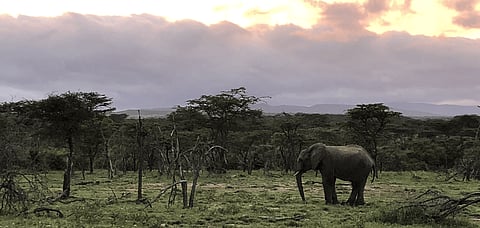

Kenya has abundant wildlife and beautiful national parks. However, as all over the world, poaching and other infringements have caused governments to take precautions to protect their wildlife. In a new development this week, China's e-tail giant Alibaba's computing arm has said it would help Kenya protect its wildlife in Africa using its cloud services.
"Our cloud-computing arm Alibaba Cloud and Kenya's Ministry of Tourism and Wildlife have agreed to deploy cloud services to support the African country's wildlife protection project," said the company at its Cloud Computing Conference 2018 in Hangzhou. Using Alibaba Cloud's computing, artificial intelligence (AI) and Internet of Things (IoT) tools, the project will work to protect endangered elephants, rhinos and lions inside the Tsavo East and West National Parks, Kenya's oldest and largest protected area of over 13,500 sq km.
"The collaboration shows the positive impact that technology, including cloud computing, AI and IoT, can have on the planet and wildlife protection," said the President of Alibaba Cloud Simon Hu.
Around the national parks technologies like animal tracking sensors, infra-red trap cameras, smart weather stations, ranger devices and wide-area drones will be installed and connected to Alibaba Cloud's IoT platform for monitoring the animal movements and their health.
"The platform would then analyse the data and predict their behaviour and travel routes, alerting the command centre about potential risks or dangers, such as illegal poaching and human-animal conflicts," the company said.
Alibaba and Kenya's Ministry of Tourism and Wildlife will also explore ways Ato combine the local operators' telecommunications network with government-licensed satellites to build the infrastructure to make data transmission less costly and more intelligent, it added.
Advanced hardware such as light-weight solar-powered trackers that are easier for animals to wear would also be used in the project.
"Currently Kenya has about 35,000 elephants, and 42% of this population (12,843) are in the Tsavo ecosystem, which also provides critical habitat for rhinos, giraffe and lions, making it important for Kenya government to use technology to protect wildlife and their habitats," added the principal secretary of Kenya's Ministry of Tourism and Wildlife Margaret Mwakima.
(With inputs from IANS)
